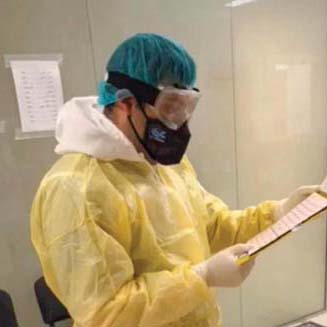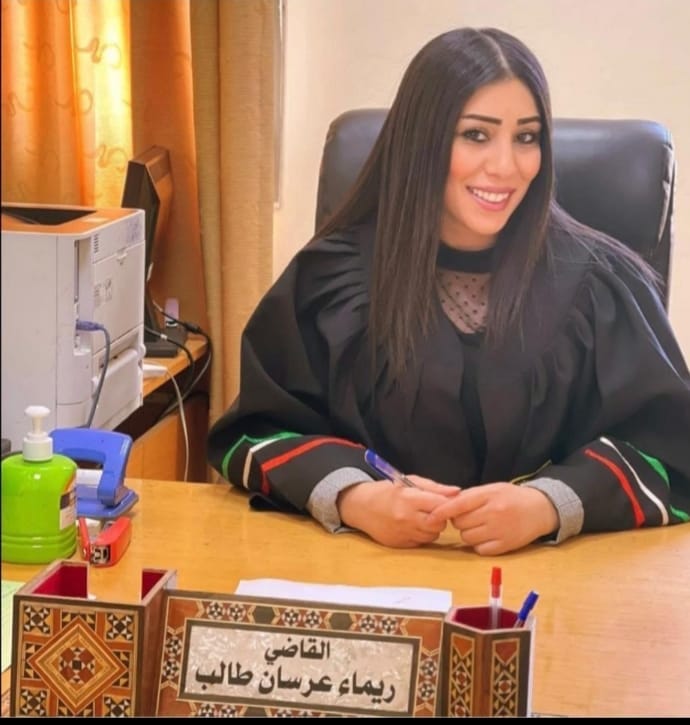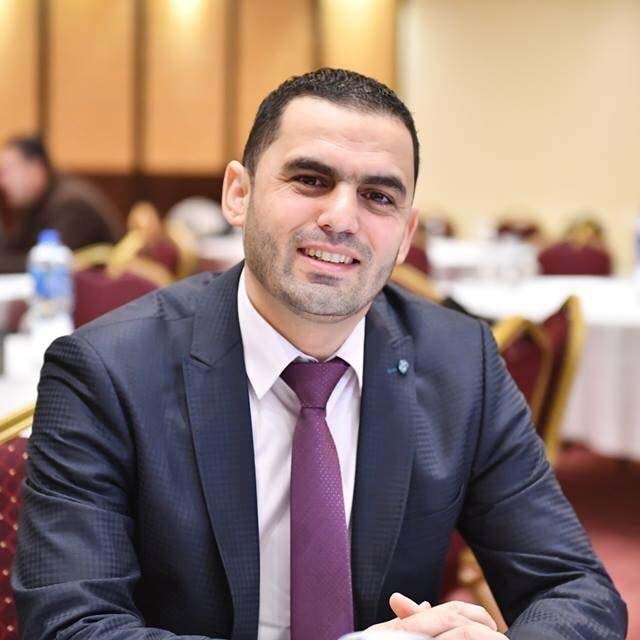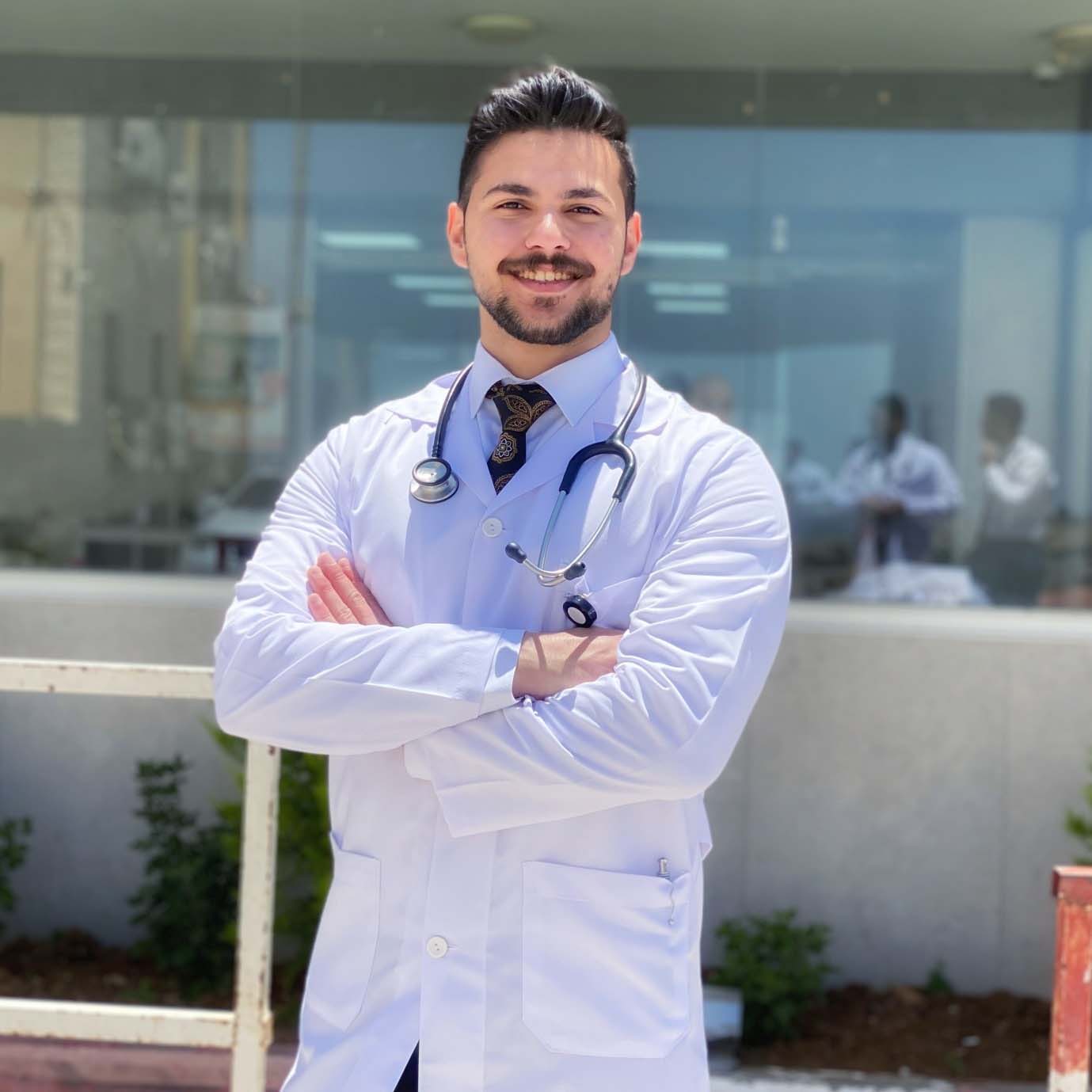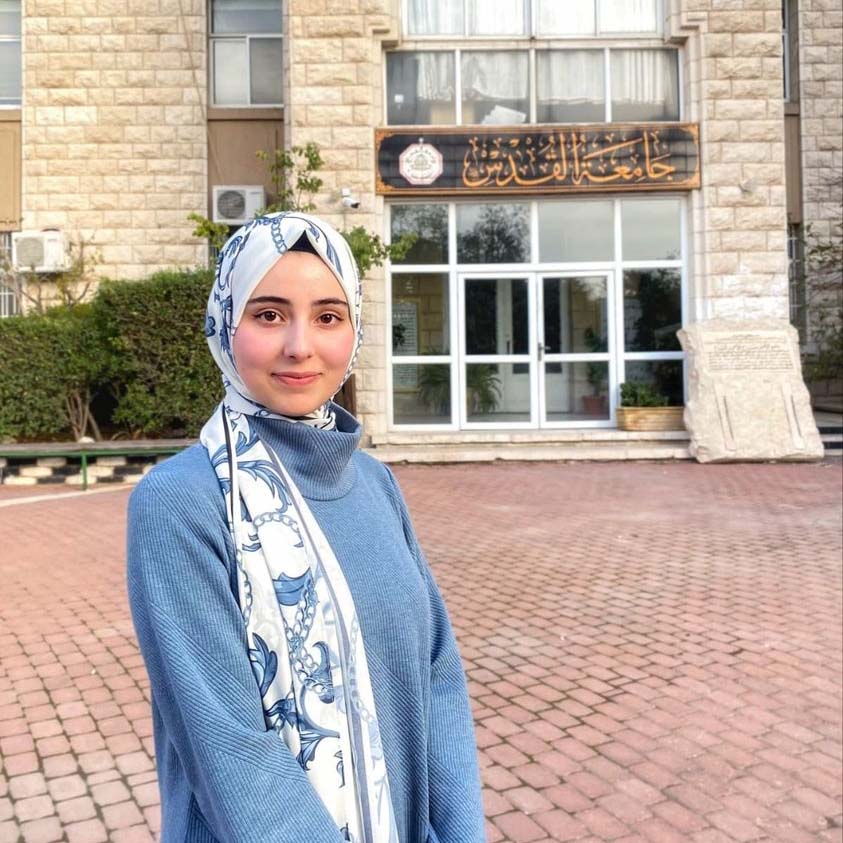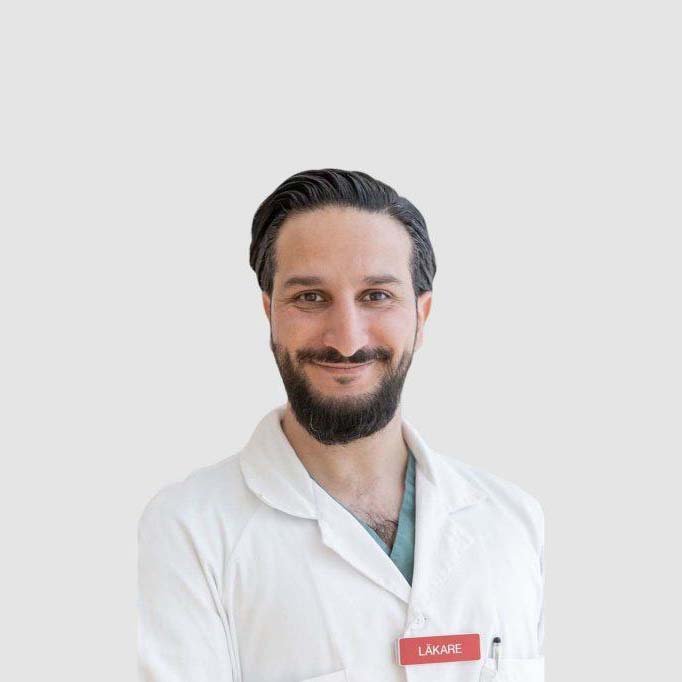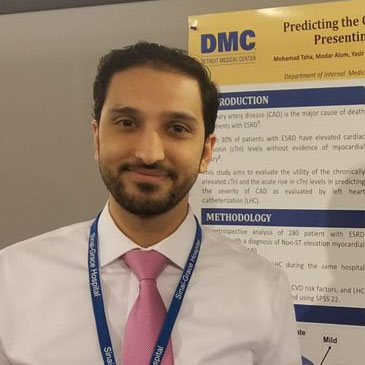I received a call from the Palestine Medical Complex on Wednesday, the 25th of March, to prepare for an emergency shift. I packed my bag, said goodbye to my family and friends, and headed to the Hugo Chavez Hospital,” says Dr. Ahmed Dalasha.
Among the medical teams fighting in various COVID-19 patient care centers in Palestine, we always find graduates of Al-Quds University fully prepared to face the pandemic and work tirelessly for humanity.
Dr. Ahmed Dalasha, a graduate of the College of Medicine at Al-Quds University in 2012, and a specialist in internal medicine at the Palestine Medical Complex, worked for 25 days at the Palestinian-Venezuelan Hugo Chavez Hospital in the village of Turmusayya, north of Ramallah, a specialized hospital for ophthalmology and surgery that has been a center for the care of virus patients since last March.
“In the morning at nine o’clock, we put on our full designated clothing, ready to move to the isolated patient area away from the rest of the hospital departments, to go on an inspection tour among the infected, and thus we begin a difficult day between monitoring their conditions and providing them with the needs that match the condition of each of them, until the end of the morning shift, when we move to a designated area to exit the isolated section, where we take off our protective clothing, shower, and change our clothes,” adds Dalasha.
Just as the hospital’s system separates the areas designated for infected and healthy people, it classifies patients according to their condition and severity of symptoms. On the first floor, there are patients with stable to moderate conditions, while those who need intensive care are on the second floor.
When a newly tested positive patient arrives, the ambulance enters the designated parking area exclusively for this purpose. Here, the medical team wears full protective clothing, takes the infection information from the patient’s transport team, and assesses the condition in preparation for transferring the patient to the appropriate department.
The beginning: 20 cases per day
In the early days of the worsening situation, the daily rate of infections arriving at the hospital was between 10-20 cases. Dr. Ahmed and his colleagues expected the worst, given the sharp rise in the curve of infections in Palestine.
“We were afraid that things would get worse, and there would be a huge increase in cases, which would force us to adapt the capacity of the medical teams and the potentially large numbers,” the doctor confirms.
On the other hand, there was a concern among the staff about dealing with intensive care patients. According to the World Health Organization guidelines, intensive care patients are the most capable of transmitting the infection through artificial respiration devices, which contribute to the release of droplets up to a distance of 6 meters, causing fatigue and discomfort for the teams who wear full clothing for long hours, in addition to extra precautions for protection.
Fortunately, Dalasha reports that the current rate of severe cases is less than 2% of the total cases, while the moderate cases are about 15%, and about 80-83% are very mild cases. This mainly depends on age, and symptoms may worsen for those who suffer from chronic diseases.
A Death on the First Night
The first death from the virus occurred on Dr. Ahmed’s first day at the hospital. The woman, in her sixties from a Bedouin village northwest of Jerusalem, was in intensive care. Her heart stopped beating, and the doctors tried to revive her, but she did not respond.
The doctor recalls the painful moments following the woman’s death, as he oversaw the burial process carried out by medical teams, as per the Ministry of Health’s decision. The deceased’s body was buried at night, without any relatives present to ensure safety.
“We put her in the grave and recited Al-Fatiha for her, then we prayed for her,” adds Dalasha.
Two weeks after the first death at Hugo Chavez, a patient from the Tulkarm governorate died. He had arrived in critical condition, and the medical team held a funeral prayer for him at the hospital.
“It pained us that we couldn’t save them. We hoped not to record any deaths due to the pandemic and to control the patients’ conditions as much as possible,” the doctor comments.
Life Sneaks In
“Among our many moments with the patients, we remember the one-year-old girl, Sham, when we brought her toys while she was in bed between her parents. The little girl felt happy, and we were all touched by her joy,” says Dalasha.
Regarding recovery cases, he explains that tests are conducted according to a medical protocol based on the patient’s condition. Three consecutive tests are conducted with varying schedules depending on the case. If the result is negative for all tests, the patient is considered recovered.
“Your test results have come back, and they are negative for the third time,” with this statement, the Hugo Chavez team informs the patient of their recovery. “We saw tears of joy, and some of them fell to the ground amid the happiness of our fellow doctors,” the doctor continues.
He adds, “During my time at the hospital, 20 people recovered. We held celebratory processions for them, filled with joy and happiness. The first time, they were received by Governor Laila Ghannam. We felt immense happiness, as our relationships with the patients had become brotherly and friendly, and we were delighted when one of them recovered.”
Our White Army
The humanitarian medical teams are our first major line of defense against the pandemic. Dalasha recounts moments when doctors communicated with their families, saying, “Most of us saw our families at intervals, sometimes up to two weeks or a month. I remember times when colleagues contacted their parents, spouses, or children. Mixed feelings of joy and sadness accompanied those moments, as families rejoiced in their loved ones’ calls, while we felt choked by our distance from them in these circumstances.”
“The great time and effort of the medical teams have led us to a stable epidemiological map of Palestine,” he continues. “Doctors, especially graduates of Al-Quds University, have played the most significant role in the field, whether working at Hugo Chavez or other patient care centers. We are proud of this, as well as our university, which managed to manufacture a ventilator among many other achievements.”
Capital University
Regarding the impact of Al-Quds University itself, Dalasha concludes, “It has left a lasting imprint on us as graduates and instilled a sense of belonging to the cause and the people. The university has always been at the forefront, constantly contributing to raising the health sector’s level and efficiency by supplying the medical field with graduates who possess a high level of responsibility and knowledge. This has led us to bear the responsibility of representing the university in the best way possible in every forum.”
The President of Al-Quds University, Prof. Imad Abu Kishk, announced the commencement of producing 100 ventilators in the university’s laboratories and workshops. This initiative comes following the device’s accreditation by the Palestinian Standards and Metrology Organization, under the Ministry of National Economy. The university will provide the ventilators to the Ministry of Health for distribution to hospitals and treatment centers designated for COVID-19 patients.
Recently, the university has been working on developing a device to test for the coronavirus. Since the beginning of the crisis, the university has devoted all its resources to combating the pandemic. It has also sought alternatives to ensure the continuity of the educational process, successfully transitioning to an online learning system, which has been part of its methodology for years. The university has also directed its research efforts towards combating the virus, in addition to participating in awareness campaigns against the disease, involving several professors of medicine, public health, and epidemiology sciences at the university. The tireless efforts to fight the pandemic in the field are attributed to its graduates from various medical fields, laboratories, and nursing.


